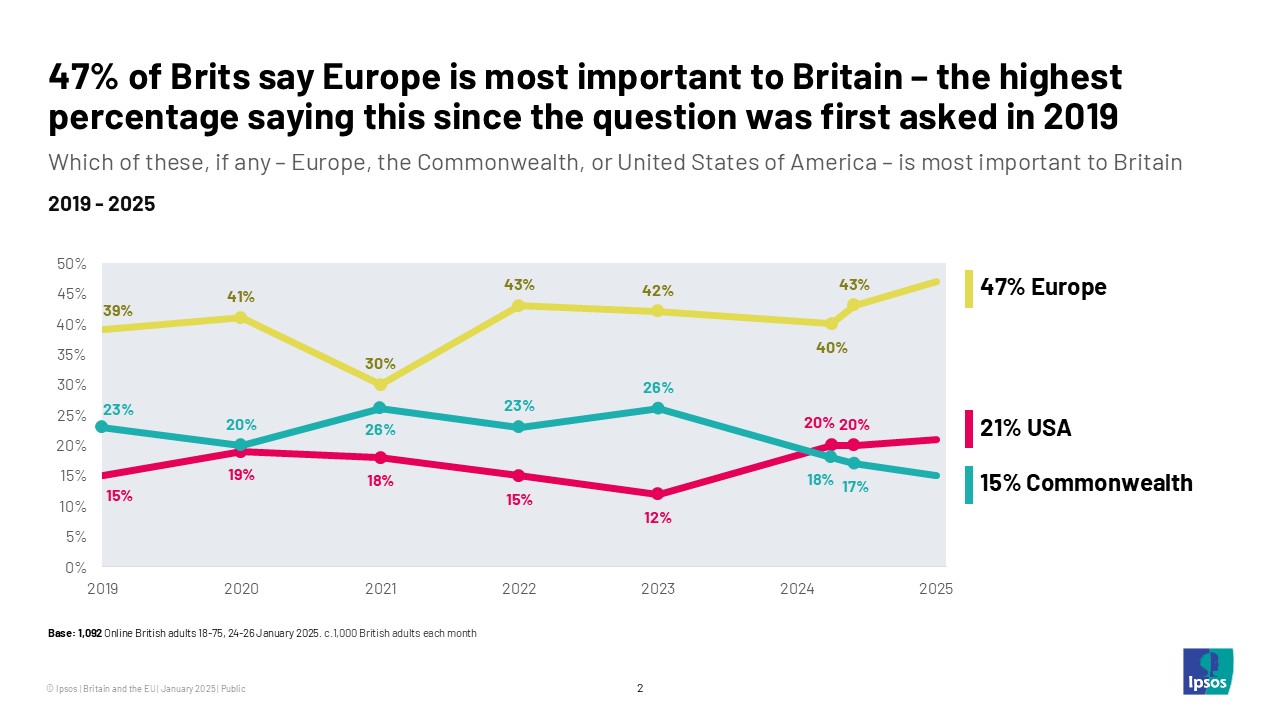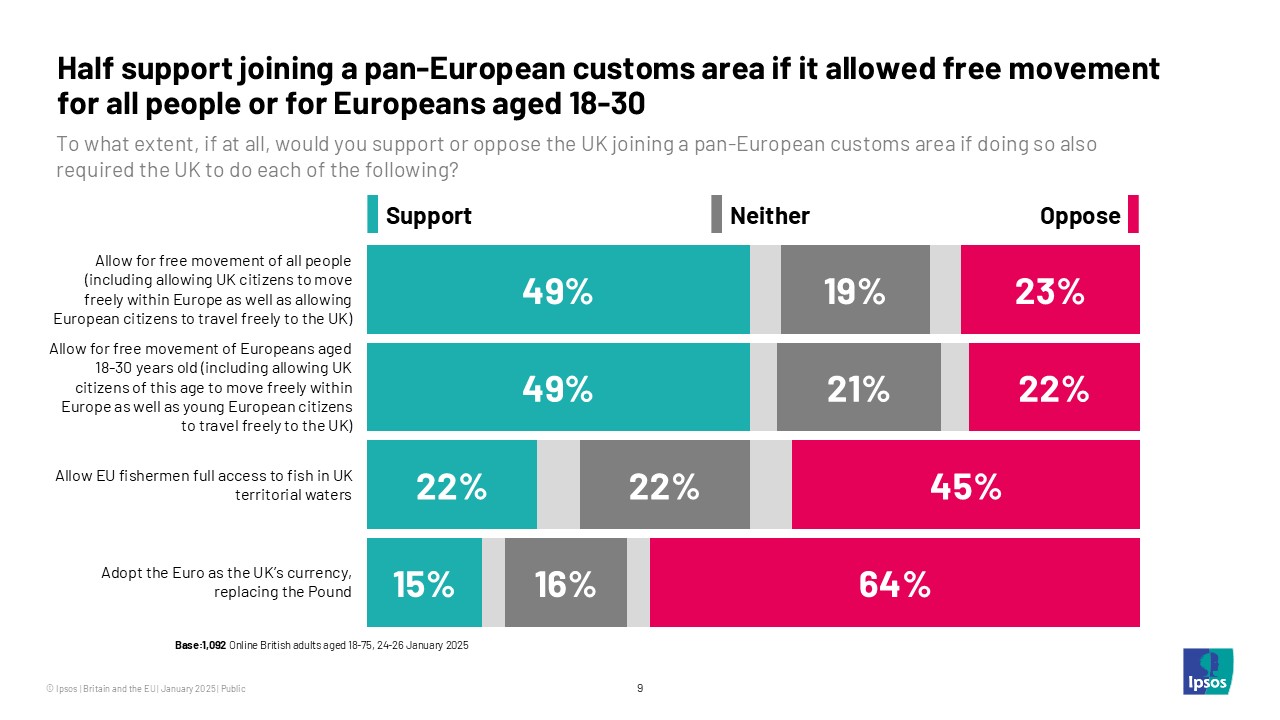Nearly half of Britons view Europe as most important to Britain compared to USA, Commonwealth
A new Ipsos poll shows that nearly half of Britons (47%) now consider Europe to be most important to Britain. This is the largest share since this question was first asked in 2019, when the figure stood at 39%. The proportion far surpasses those who think the USA (21%) or the Commonwealth (15%) are most important to Britain.

Furthermore, the poll indicates that twice as many Britons (36%) believe Britain's interests align with Europe's than think their interests are opposed (18%). By contrast, 3 in 10 (29%) think Britain’s interests are similar to the USA’s, with 23% viewing their interests as opposed. China’s interests are perceived as the most different to Britain’s, with just 10% saying their interests are similar and half (52%) saying their interests are different.
Five years following Britain’s official departure from the EU, half (48%) of Britons say that leaving the EU has negatively impacted their daily lives, rising from 28% who said the same in March 2021. An almost equal share (46%) believe Brexit has also been detrimental to the EU.
When asked about priorities for Britain's relationship with the EU, improving trade agreements to facilitate the exchange of goods and services emerged as the top concern (32%). Other key priorities include working with the EU to address illegal immigration (26%) and collaborating on crime and terrorism prevention (21%). 1 in 3 Britons (34%) express confidence that Britain and the EU will work together to achieve a satisfactory outcome on their top priorities, with half (53%) saying they’re not confident. Confidence is highest amongst 2024 GE Labour voters (45%) and Lib Dem voters (43%), and lowest amongst Reform UK voters (24%).
Half (50%) of the public would support the UK joining a pan-European customs area, with just 12% saying they would oppose such a membership. Support is unchanged if membership required Britain to allow free movement of people within Europe (49%), or free movement of people aged 18-30 specifically (49%). However, support falls by more than half if membership would require EU fishermen to have full access to fish in UK territorial waters (22%), or for Britain to adopt the Euro as the UK’s currency, replacing the Pound (15%).

Paul Adamson, chair of the EU-UK Forum, said:
Not just politicians but also the general public feel very strongly about the need for greater EU-UK cooperation in a whole raft of areas. But the absence of visible progress leads inevitably to the public feeling pessimistic about progress in strengthening the relationship. Today’s conference is an opportunity to take stock in a public setting about what is being done and what remains to be achieved.
Gideon Skinner, Senior Director of UK Politics at Ipsos added:
Amidst political volatility in both the US and Europe, Britons are increasingly viewing Europe as the most important relationship for Britain. While a significant portion of the public feels that Brexit has had a negative impact on their daily lives and on the EU, there’s a clear desire to improve trade relations and cooperation on key issues such as immigration, crime prevention, and terrorism. The public's top priority for the UK's relationship with the EU is enhancing trade agreements, and there's considerable support for exploring options like joining a pan-European customs area, particularly if it includes provisions for free movement of people. This suggests a potential pathway towards closer alignment with Europe, even within the context of the government's existing 'red lines.' This presents a crucial opportunity for policymakers to engage in constructive dialogue with the EU and work towards a mutually beneficial future relationship that addresses both the challenges and opportunities presented by the current geopolitical landscape.
Technical note:
- Ipsos interviewed a representative sample of 1,092 online British adults aged 18-75 across Great Britain between –24th-26th January 2025.
- Data are weighted to match the profile of the population. All polls are subject to a wide range of potential sources of error.




